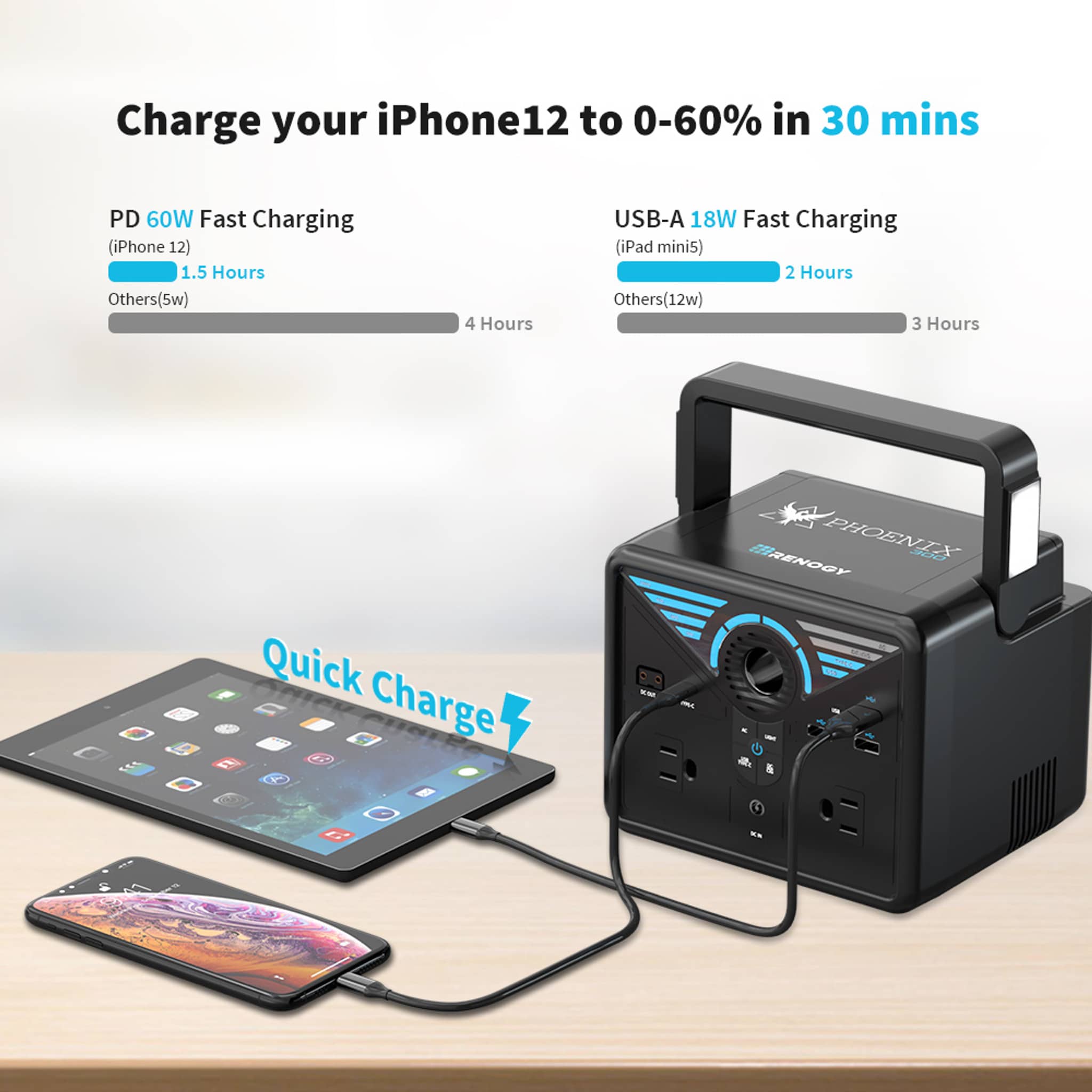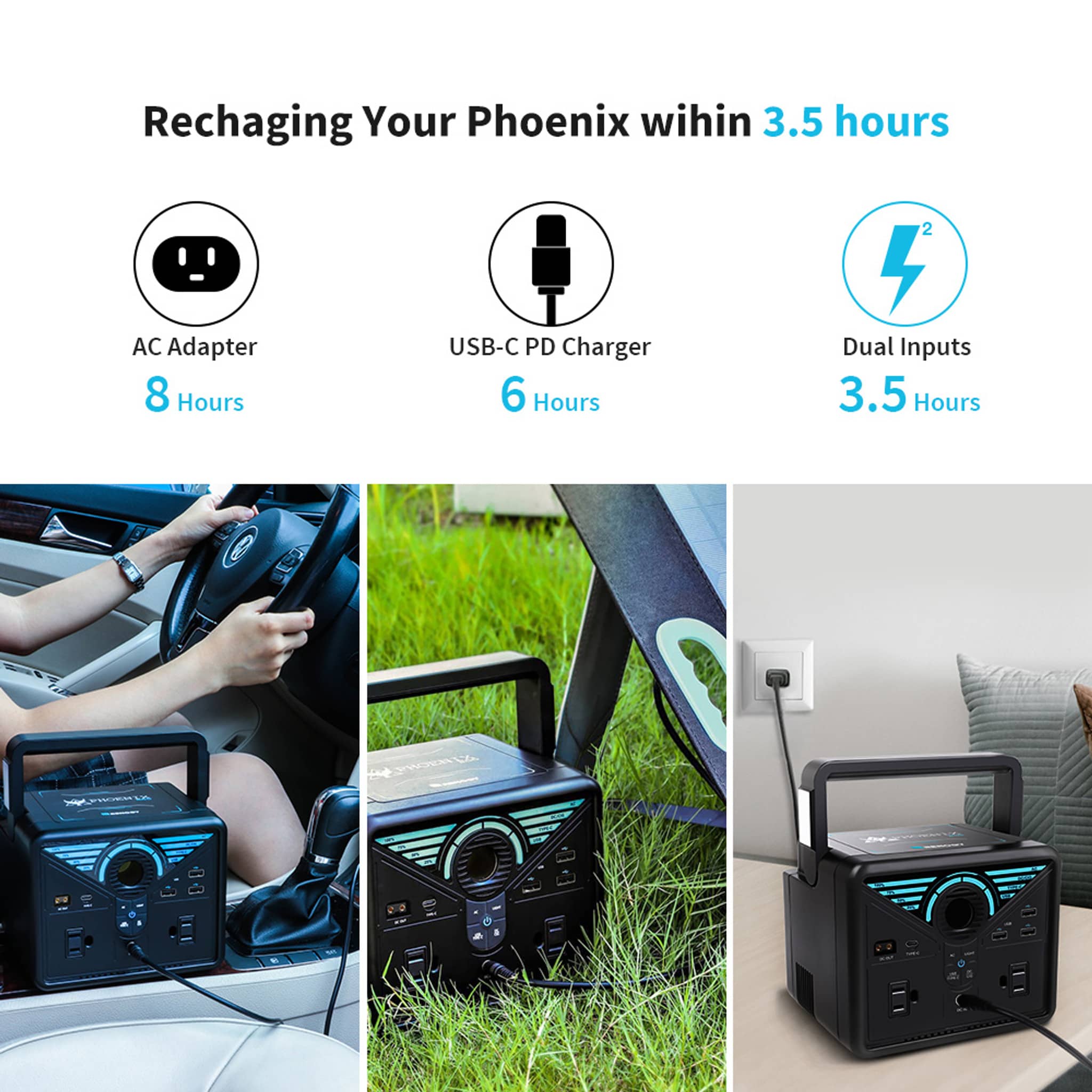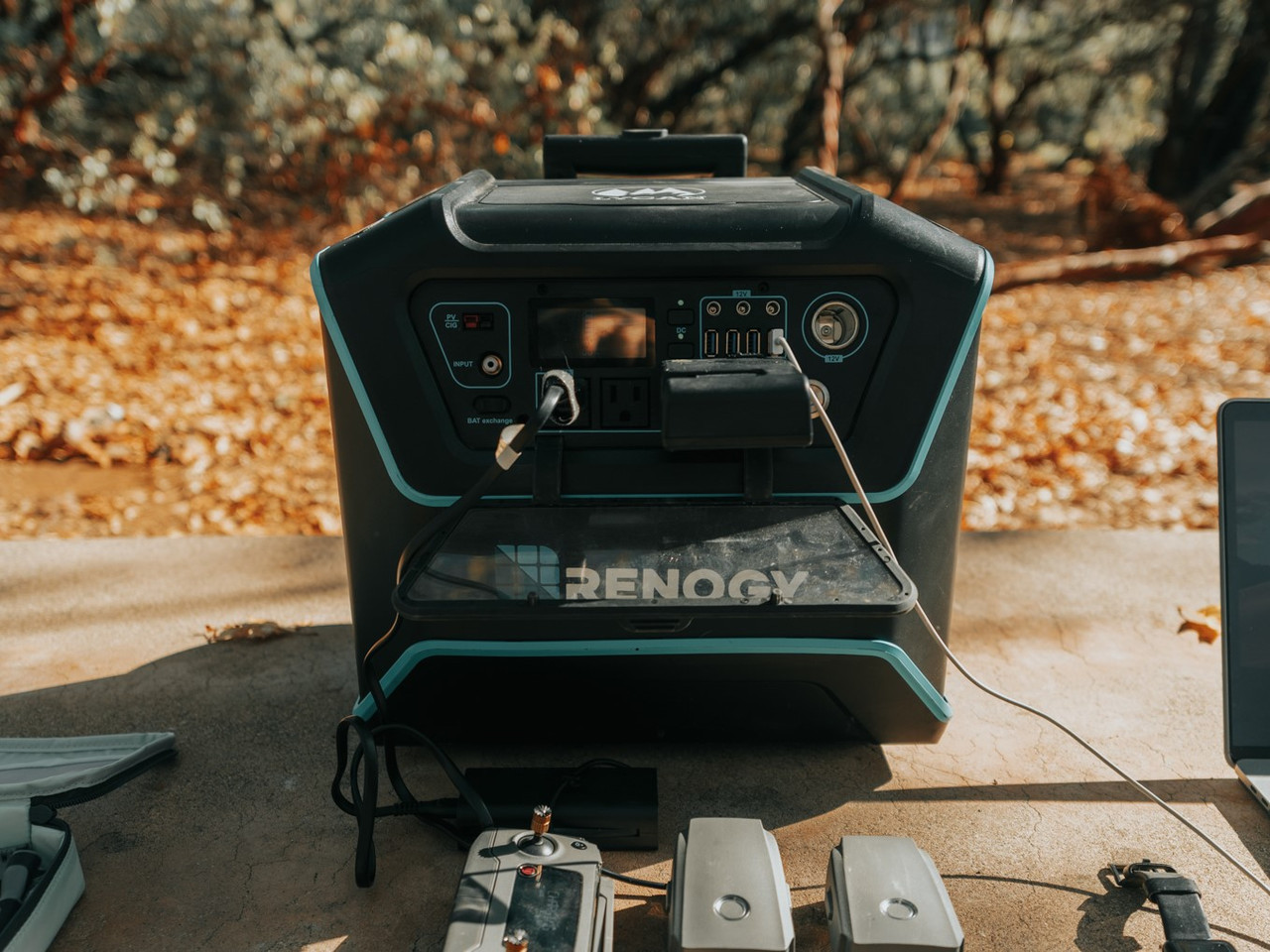How To Properly Size a Backup Solar Power Generator For Your Home
One minute you're going about your day-to-day life, then the lights flicker, and suddenly, you're plunged into darkness.
It's an all too familiar scenario because almost everyone has experienced a blackout at least once in their lives.
But in some areas, blackouts or brownouts occur far too frequently for our liking. Many states have frequent electricity shortages or turn the power off during fire season. Natural weather disasters such as floods, hurricanes, and storms can also impact power supplies. There are countless reasons you may want a backup energy source for those times when you can't rely on the grid.
Backup generators are becoming a must-have appliance for many modern American households. Generators protect families and their homes in an emergency by supplying backup power that keeps the lights and essential appliances on.
Generators can power your refrigerator, so food in the fridge and freezer stays safe from spoilage. You can even keep on the air conditioner or furnace during poor weather. Generators can power other essential devices such as sump pumps, life-saving medical equipment, electronics like computers and phones, and other kitchen appliances.
The benefits of a solar power generator
While generators are a must-have item in many households, they also have several drawbacks. Traditional generators are noisy and run on gas or other fossil fuels. With fuel prices drastically rising, a gas-powered generator can be expensive to run even at the best times. But in a serious natural disaster, fuel can be expensive and difficult to source. That's why it's worth considering a switch to eco-friendly solar power generators as your backup energy source.
You don't need to worry that one day the lights will go out, and you'll find yourself sitting silently in the dark. Knowing you have a plan for when the power goes out can save your life and minimize stress. It just takes a little bit of forward planning to protect yourself and your family during blackouts and brownouts.
Learn how to prepare for emergencies using a solar power generator.
What devices and appliances will you need during a blackout?
In some cases, you'll be forewarned of a blackout or brownout. If there are planned outages, your utility company will alert you in advance. But more often than not, power outages occur unexpectedly, so you should be prepared at any time.
The purpose of a backup generator is to provide an emergency power source, but In inclement weather, it can be difficult to restock generator fuel or recharge a solar battery. Therefore you should always be mindful of conserving energy by using only the most essential devices and appliances.
Essential Appliances
Lights: Lights are obviously an essential appliance; you don't want to be stumbling around in the dark! But keep light usage to a minimum. You don't need lights on in the garden or every room; limit them to the rooms you need to use.
Heating or Cooling Appliances: A power outage in inclement weather like a hurricane or winter storm is common. These are often situations where the weather is either dangerously hot or dangerously cold. It's therefore essential to have a backup solar generator to power heaters and air conditioners.
You can still minimize heating usage by dressing appropriately in layers and using extra blankets. It may also be a good idea to keep some battery-powered fans for hot weather.
Fridges & Freezers: Food is an obvious essential in an emergency. It's always a good idea to have some non-perishables stocked for emergencies, but of course, you'll want to keep the fresh food you have in your fridge and freezer cool as well.
A completely full freezer can stay cold for up to two days during a power outage, but a half-full freezer will only last around 24 hours. In the refrigerator, the clock is ticking, and food will remain safe for just four hours during a blackout. If you can't power this appliance, your food will spoil quickly, and you may run out of supplies. Running out of food can be life-threatening in a serious emergency.
Water: Many modern water heaters will rely on some electrical power and will not work correctly to create hot water during a power outage. If you want a hot shower, it's a good idea to have one soon after the power goes out.
Microwave: Most gas stoves will work in a power outage; you can light them with a match. However, if you don't have a gas stovetop, a microwave may be an essential appliance to cook food.
Essential Devices
Cell phones: Cell phones are an essential means of communicating with friends and family in an emergency. You can also use them to stay up-to-date on local news and safety announcements.
Although cell phones are an essential modern device, they should be used sparingly. An emergency power outage is not the best time to waste your phone's battery life playing games or mindlessly scrolling social media. You shouldn't drain your phone's battery carelessly.
Radio: If you can’t get a phone signal in an emergency then a good old-fashioned radio is another essential device. A radio will keep you up to date with local announcements.

Non-Essential Electronics
As soon as the electricity goes out, you should turn off and unplug any electronics and appliances you aren't using. Even if your generator kicks in immediately, be sure to turn off any lights you aren't using, and keep the family in just a few rooms of the house to minimize energy usage.
It's essential to turn off electronics quickly, even if the power outage is short, because when the power comes back on, the initial If you're well prepared and have plenty of battery capacity, you can run some non-essential small appliances and electronics. Non-essentials could include devices like televisions, laptops, kitchen gadgets, etc. But only use non-essentials if you have a clear understanding of your battery capacity.
How Much Battery Capacity Do You Need?
Solar power uses sunlight so that solar panels can run your appliances during the day. But, to run lights and devices through the night, you'll be relying on your solar battery storage.
If you're looking to buy a solar generator, you should first determine what appliances you can't live without in an emergency, what appliances are nice to have, and how much wattage they all need.
The energy needs of every household will be different. They are impacted by the size of your home and the number of members in your household. Older family members may require more energy for heating or medical equipment, while families with young children may require more energy for entertainment.
Estimating energy needs:
- Make a list of all these appliances or devices your family really needs, and estimate the amount of time you plan to use each item per day.
- Add the wattage for each of these devices to your list.
- If your appliances don't have their power consumption given in watts on the label, you can multiply the voltage and current (amps) to calculate the consumed watts per hour.
- Then you can calculate the Average Daily Watts by multiplying the appliance's Power Rating (in Watts) times the number of hours per day that you want to run the device.
Remember, energy use should be lower in an emergency situation. You may need a heater on at all times during winter, but planning to run the television all day is unrealistic. You should try to reduce your average daily energy consumption by at least -30%.
Once you've calculated the Average Daily Watts for all of your devices and appliances, you can estimate both your total Energy Storage (Wh/day) and the Peak Power Rating (Watts). Our Solar Calculator makes this method easy - to help you size a backup solar power generator that meets your home's energy needs.
How much wattage does each appliance need?
The wattage of a device or appliance can be found on the label of most consumer electronics.
How Many Days Of Backup Power Do I Really Have?
However, you need to remember that your solar panels don't always get enough quality sunlight during the day to meet your entire evening energy needs. For example, you may only get enough sunlight in the winter for five hours of power generation. This scenario means your power consumption and the solar panel's potential power generation match, but you are still left with a shortage of power.

Choosing the right solar power generator
Renogy has a range of solar generators and power stations, from small and compact to more extensive solutions. Renogy power stations use high energy density battery cells and have innovative design features to deliver maximum power while taking up minimum space.
Because our generators have multiple output ports, you can power an extensive range of devices and appliances in an emergency fast and safely. These portable solar generators are lightweight, eco-friendly, and noiseless, making them the perfect emergency energy solution.
For larger emergency generator needs, the Renogy Lycan powerbox has a bigger capacity of 1075 watt-hours. This generator will need up to three 100 watt solar panels to charge.
For those with light emergency energy needs, the Renogy Phoenix 300 has a capacity of 337Wh.
The power and recharge time of your solar generator will depend on your energy needs. A smaller generator can recharge some small USB devices, while a bigger generator will run your bigger appliances in a blackout.
How Long Does It Take To Recharge The Batteries Using Solar Panels?
Most backup solar power generators are designed to remain fully charged until needed - ideal for infrequent emergency use. The length of time it takes to recharge your solar batteries depends on the number and size of solar panels you have exposed, how much sunlight you have, and the power rating of the solar panels ( watts per hour).
Every generator will have different requirements for charging. Larger generators will need more solar panels and more sunlight to power an entire household. If you're using your generator for several days in a row, it will need to be recharged. The overall amount of energy that a solar generator can produce will always be determined by both the amount of sunlight available and the number of solar panels you have installed.
Proximity to solar panels
Some solar backup generators work with solar panels that can be located far away from the actual generator itself. Other generator models have panels mounted directly to or closely linked to the actual generator unit.
Protection from damage
Solar panels are known to be highly durable and can withstand even harsh weather. Most solar panels have a lifespan of at least 25 years. However, after an emergency weather situation, you should check your solar panels for any damage or debris. A solar panel needs to be clear of snow, leaves, dirt, or other debris so that it performs optimally.
Snow that builds up around solar panels is one of the most common issues that require solar panel maintenance. Snow build-up is more likely to be an issue with ground-mounted solar panels.
Be ready for the next power outage
Now you've learned how to properly size a solar power generator, you can sleep easy knowing you're prepared for an emergency. You can also take extra steps to be emergencies ready, such as stocking a home emergency kit and stockpiling some basic supplies and non-perishable foods.
If you're looking to avoid the high operational costs and detrimental environmental effects of gas generators, then solar generators are ideal for you. They're eco-friendly, cheap to run, and also last significantly longer.
Power cuts and emergencies are destructive and can be scary, but with a solar power generator, you'll have peace of mind that your family will get through the experience safely. Eventually, your power will turn back on.








